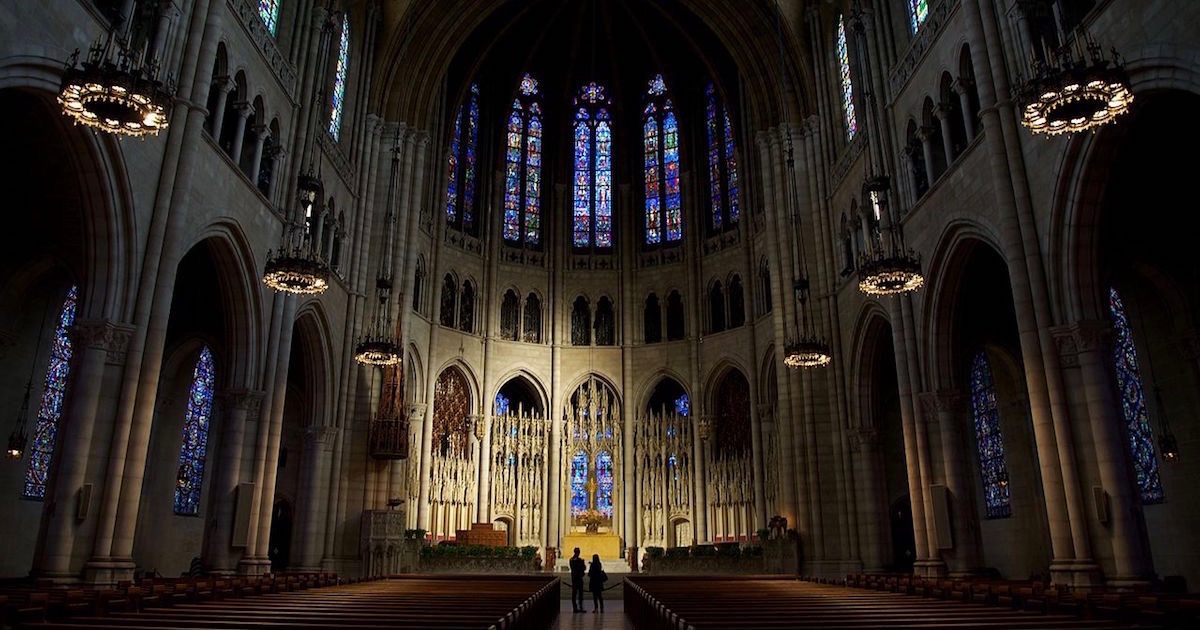
State religion? You, reader, object (of course): That scenario is not plausible! The theories are not believable!
No? In the 20th century, Marxist economic theories became a state religion. These theories were propounded and enforced for decades, and dissenters were punished, despite the fact that mass starvation was a common outcome. Hunger was predictable, predicted, and widely known. Thinkers naturally assumed that evidence and reason would prevail over enforcement and dogma. But when evidence is rejected, reason has little to work with. Eventually, reason does prevail but much else prevails meanwhile. And in that particular case, great scientists such as Einstein, Godel, and Lakatos were surprisingly complicit, knowingly or otherwise.
Admittedly, naturalism differs from most religions in its disdain for evidence in principle. As astrophysicist Ethan Siegel puts the matter at Forbes, the multiverse, for which no evidence may be possible, may be “the first physically motivated ‘metaphysics’ we’ve ever encountered.” By contrast, most religions have been established and defended on the basis of evidence. The evidence is often rejected by others or, at any rate, not considered decisive, but few have thought that they did not need any evidence.
Can naturalism reject all need for evidence or reason and still thrive as a state religion? If history can repeat itself, let’s keep an eye on some straws in the wind. We can see if any large number of them are blowing in any one direction and if their numbers increase over time.
One direction is scientism, the view that science (applied naturalism) should decide any question whatever. A recent incident in Canada, noted here by biophysicist Kirk Durston, is suggestive. Astronaut Julie Payette, a Canadian appointed as governor-general, chose a science policy convention earlier this month to ridicule those who doubt that life arose as a random process: “And we are still debating and still questioning whether life was a divine intervention or whether it was coming out of a natural process let alone, oh my goodness, a random process.” While Conservative opposition figures demurred, Liberal Prime Minister Justin Trudeau praised her performance, making clear that a person whose job is to foster national unity should ridicule non-naturalist views. Tellingly, Durston writes, Payette and Trudeau display these attitudes at a time when corruption “has reached crises proportions in certain areas of science itself, with a special nod to the biological sciences.” But then naturalist doctrines increasingly discount evidence in favor of support for naturalism. More.
See also: How naturalism rots science from the head down
The Big Bang: Put simply,the facts are wrong.
What becomes of science when the evidence does not matter?
Cosmology is naturalism’s playground. But does the fun mask a science decline?
Post-modern physics: String theory gets over the need for evidence
Cosmic inflation theory loses hangups about the scientific method
The multiverse is science’s assisted suicide
Question for multiverse theorists: To what can science appeal, if not evidence?
Post-modern science: The illusion of consciousness sees through itself
Nature, as defined today, cannot be all there is. Science demonstrates that.
Can science survive long in a post-modern world? It’s not clear.